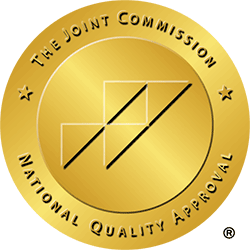
Alcohol addiction, or alcohol use disorder (AUD), can affect anyone, but certain factors increase the likelihood of developing this condition in adulthood. Understanding the risk factors associated with alcohol addiction can help individuals and families identify potential issues early and seek the appropriate support. At BriteLife Recovery, we specialize in providing personalized care for those struggling with alcohol addiction, helping them reclaim their lives and build healthier futures.
What is Alcohol Use Disorder?
Alcohol addiction is a chronic condition characterized by an inability to control alcohol consumption despite its negative consequences. It often develops gradually, influenced by a combination of genetic, environmental, and behavioral factors. While anyone can develop AUD, some groups are more vulnerable due to specific risk factors.
Risk Factors for Alcohol Addiction in Adulthood
1. Genetic Predisposition
One of the most significant risk factors for developing alcohol addiction is genetics. Studies show that individuals with a family history of alcohol use disorder are more likely to develop the condition themselves. This predisposition may stem from inherited traits that affect how the brain responds to alcohol.
2. Early Exposure to Alcohol
Individuals who start drinking at a young age are at higher risk of developing addiction in adulthood. Early exposure can disrupt brain development and establish patterns of heavy drinking that persist over time.
3. Mental Health Conditions
Adults with underlying mental health disorders, such as depression, anxiety, or post-traumatic stress disorder (PTSD), are more likely to use alcohol as a coping mechanism. This self-medication can quickly lead to dependency.
4. High-Stress Environments
Chronic stress, whether from work, relationships, or financial difficulties, increases the likelihood of turning to alcohol for relief. Over time, this reliance can escalate into addiction.
5. Social and Cultural Influences
Social environments that normalize heavy drinking, such as certain workplace cultures, friend groups, or family dynamics, can encourage excessive alcohol use. Cultural attitudes toward drinking can also play a significant role in shaping behavior.
6. Trauma and Adverse Experiences
Adults who have experienced trauma, whether in childhood or later in life, are at a greater risk for developing alcohol addiction. Unresolved trauma often leads individuals to seek relief through substances like alcohol.
7. Gender Differences
Men are statistically more likely to develop alcohol addiction than women, although women are at higher risk for certain alcohol-related health issues. Gender-specific factors, such as hormonal differences and social roles, contribute to these trends.
Why Understanding Risk Matters
Recognizing who is at greater risk for alcohol addiction helps families, friends, and healthcare providers take proactive steps toward prevention and early intervention. It also empowers individuals to make informed decisions about their alcohol consumption and seek help when needed.
How BriteLife Recovery Can Help
At BriteLife Recovery, we understand the complexities of alcohol addiction and the factors that contribute to its development. Our comprehensive treatment programs are tailored to address each individual’s unique circumstances, providing:
- Medical Detox: Ensuring a safe and comfortable withdrawal process.
- Therapeutic Interventions: Including individual and group therapy to address underlying issues.
- Holistic Care: Focusing on overall well-being with mindfulness, nutrition, and physical activity.
Relapse Prevention: Equipping clients with tools and strategies to maintain long-term sobriety.

Take the First Step Toward Recovery
Understanding who is most at risk for alcohol addiction is the first step in addressing the problem. If you or a loved one is struggling with alcohol use, know that help is available. At BriteLife Recovery, we are committed to guiding you on the path to recovery with compassionate, evidence-based care.
Contact us today to learn more about our programs and take the first step toward a healthier, alcohol-free life.
SPEAK WITH AN ADDICTION SPECIALIST



